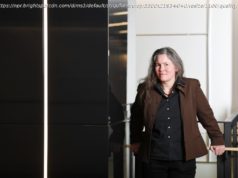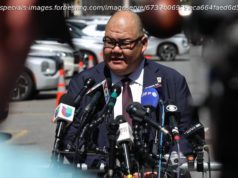Considering SpaceX accidentally blew up one of Mark Zuckerberg’s projects, this is a little awkward.
This week’s revelations about a British political consultancy’s use of data from 50 million Facebook users for potentially shady purposes has prompted many people to declare they will quit the social network in protest. One of the newest additions to the bandwagon is Elon Musk, the wealthy entrepreneur with companies like Tesla and Space X to his name—and he followed through in a very public way.
It happened, as these things do, on Twitter.
“It is time. #deletefacebook,” Brian Acton, the cofounder of the messaging service WhatsApp, tweeted on Tuesday, the day the Federal Trade Commission opened an investigation into how Cambridge Analytica accessed the Facebook data. For whatever reason, Musk decided to respond to Acton’s tweet on Friday. “What’s Facebook?” he replied. He appeared to be joking, but someone decided to call his bluff.
“Delete SpaceX page on Facebook if you’re the man?” @serdarsprofile said .
“I didn’t realize there was one. Will do,” Musk replied. At this point, it wasn’t clear whether Musk was trolling or being serious, so others joined in.
“We’re waiting,” tweeted Ryan Mac, a BuzzFeed News technology reporter, and included a screenshot of SpaceX’s Facebook page. “This should be deleted too, right?” tweeted Bryson Masse, a reporter at The Wire Report, with a screenshot of Tesla’s page. “Definitely. Looks lame anyway,” Musk replied to Masse.
When Mike Murphy, a technology reporter at Quartz, accused Musk of simply trolling, Musk replied, “What, a troll, me!? How dare you, sir!”
By Thursday afternoon, the Facebook pages for several of Musk’s brands were no longer online. They included SpaceX, the spaceflight company; Tesla, the electric-car manufacturer; SolarCity, a Tesla subsidiary that provides solar energy; and Hyperloop, the project to build a cross-country, high-speed transportation system.
Others were spared. The page for the Boring Company, the construction company Musk created to try to drill underground tunnels in Los Angeles, was untouched. So was the page for OpenAI, an artificial-intelligence research nonprofit Musk cofounded.
Musk is one of the most high-profile people to ditch Facebook in the wake of the growing scandal. When the Facebook pages disappeared, reporters bombarded the companies’ spokespeople for answers. None of the brands have released any formal statements about Musk’s tweets, perhaps choosing to let them stand on their own. The speed with which the pages came down suggests those companies’ social-media managers probably didn’t have much time for discussion. (SpaceX declined to comment on the record about the tweets.)
Musk’s boycott is particularly amusing because SpaceX has some history with Facebook and it’s not… great. In September 2016, a Falcon 9 rocket exploded on the launchpad during fueling ahead of its scheduled launch. The explosion destroyed the rocket’s payload, which included Amos-6, an Israeli communications satellite that Facebook was going to use to provide internet coverage to parts of sub-Saharan Africa.
“As I’m here in Africa, I’m deeply disappointed to hear that SpaceX’s launch failure destroyed our satellite that would have provided connectivity to so many entrepreneurs and everyone else across the continent,” Facebook CEO Mark Zuckerberg said in a Facebook post at the time.
The explosion put Facebook’s efforts for space-based internet on hold, but SpaceX has forged ahead with its own. Last month, the company launched two prototype satellites to test the technology it wants to use to someday create a constellation of nearly 12,000 satellites for global internet coverage.
All this is to say: Zuckerberg can’t be pleased with Musk’s very public boycott after SpaceX quite literally blew up his dreams for space-based internet, and then went ahead with their own.
Musk is aware of this uncomfortable situation. When Kerry Flynn, a technology reporter at Mashable, reminded him of that, he replied, “Yeah, my fault for being an idiot. We did give them a free launch to make up for it and I think they had some insurance.”
Musk claims he doesn’t use Facebook and never has. The effects of the removal of the Facebook pages will be felt most by the people employed to run them, so Musk doesn’t deserve any praise for publicly boycotting the troubled social network. For Musk, the harder thing to do would be to swear off Instagram, which Facebook owns and which he loves. “Instagram’s probably ok imo, so long as it stays fairly independent,” Musk said Friday. Perhaps, but it’s no playground, either. Instagram allows advertises to target users based on demographics, including political views, and the platform didn’t escape Russian propaganda ads during the 2016 election.






